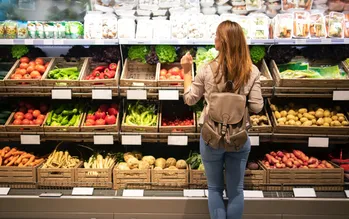Grocery shopping can be an overwhelming experience, especially when you're trying to make environmentally conscious choices while staying within your budget. With the increasing awareness of the impact that food production and packaging has on the environment, consumers are looking for sustainable ways to grocery shop. In this article, we will discuss twelve strategies that will not only help you save money but also reduce your carbon footprint.
Make a List
The first step towards sustainable and cost-effective grocery shopping is to make a list. This might seem like an obvious task, but it's crucial for several reasons. Firstly, making a list helps you avoid impulse buying, which can lead to overspending and food waste. Secondly, by creating a list based on what you need and what's on sale, you're more likely to stick to your budget and reduce unnecessary expenses. Lastly, planning ahead ensures that you only buy the items that you actually require, thus minimizing the amount of food waste produced.
Shop Seasonally
Shopping seasonally has several advantages. Firstly, it helps support local farmers by buying produce that is in season. Secondly, it reduces transportation emissions associated with transporting out-of-season produce from different parts of the country or even the world. Thirdly, seasonal produce is often cheaper because it's abundant and doesn't require as much preservation techniques like packaging, refrigeration, etc.
Buy in Bulk
Buying products in bulk can lead to significant cost savings over time. When shopping for pantry staples such as grains, beans, and pasta, look for bulk options as they're typically cheaper than pre-packaged alternatives. Additionally, buying larger quantities of items that you use regularly will help reduce the number of trips you need to make to the grocery store, thus reducing transportation emissions.
Use Reusable Bags
Using reusable bags instead of single-use plastic bags is a simple way to reduce waste and save money over time. Some stores even offer discounts for customers who bring their own bags, making this an extra incentive to make the switch. Additionally, carrying your groceries in reusable bags helps prevent unnecessary emissions from single-use bags that end up in landfills.
Opt for Eco-Friendly Packaging
When choosing packaged products, look for eco-friendly packaging options such as glass, paper or biodegradable materials instead of plastic. These materials are often more sustainable and can be recycled or composted, reducing the amount of waste produced. Additionally, many brands now offer refillable packaging solutions, where you can bring your own containers to be filled up, further minimizing waste.
Choose Local
Choosing local produce and products helps support the community by keeping money within the local economy while reducing transportation emissions associated with shipping items from different parts of the country or even the world. Additionally, locally sourced goods are often fresher and more nutritious because they're not subjected to long-distance transportation and storage methods that can affect quality.
Avoid Packaged Meals
Packaged meals might seem convenient, but they often come with a hefty price tag and excessive packaging waste. Instead, consider buying whole foods such as chicken breasts or vegetables and preparing your own meals. Not only will this save you money over time, but it also allows for more control over the ingredients used and reduces packaging waste.
Avoid Pre-Cut Produce
Pre-cut produce is often more expensive than its whole counterpart due to higher handling costs associated with cutting and packaging. Additionally, pre-cut produce might not be as fresh as whole items because it's exposed to oxygen and can degrade faster. Consider buying whole vegetables and fruits and doing the chopping yourself. This will save you money while allowing for more control over the quality of your produce.
Use Leftovers
Using leftovers is an excellent way to reduce food waste and save money in the long run. Instead of throwing away excess food, consider incorporating it into future meals or freezing it for later use. This will help prevent unnecessary expenses associated with buying more food than you need while also reducing the amount of waste produced.
Reduce Food Waste
Reducing food waste is crucial for both sustainability and financial reasons. When shopping, consider purchasing items that you're likely to consume before they spoil, and try to plan meals around those products. Additionally, storing foods properly can help extend their shelf life, minimizing the amount of waste produced. Lastly, donating excess food to local charities or food banks is an excellent way to reduce waste while also helping those in need.
Conclusion
In conclusion, implementing sustainable and cost-effective grocery shopping habits requires a little planning and effort but has numerous long-term benefits for both your wallet and the environment. By making small changes such as shopping seasonally, buying in bulk, using reusable bags, opting for eco-friendly packaging, choosing local, avoiding packaged meals, using leftovers, and reducing food waste, you can significantly reduce your environmental footprint while saving money in the long run.











